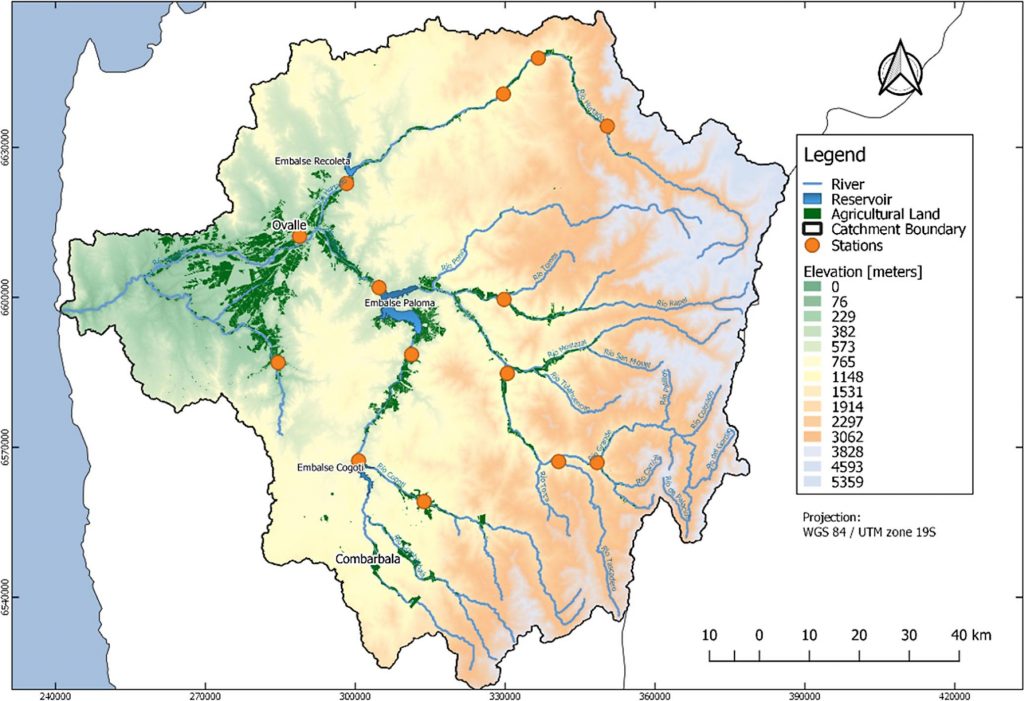CRIDA Case Study for Climate-Vulnerable Chilean River Basin Published
A Climate Risk Informed Decision Analysis (CRIDA) based case study in the Limarí River basin in Chile has been published in the journal Climate Risk Management. The study, titled “A stress test for climate change impacts on water security: A CRIDA case study”, is available at https://doi.org/10.1016/j.crm.2020.100222. Three of the authors are affiliated with UNESCO and ICIWaRM’s sister center, CAZALAC of Chile.
CRIDA is a bottom-up methodology, co-developed by UNESCO G-WADI, to help planners make better informed, robust and flexible water management decisions under future uncertainty. It is a stepwise approach for infrastructure investments and water resources management that combines the latest science for climate stress testing (decision scaling) and adaptation strategy development (adaptation pathways). A variety of case studies have now been completed in such diverse localities as Cebu City, The Philippines; Colombo, Sri Lanka; Bangkok and Udon Thani, Thailand; the Magdalena River Basin, Colombia; Iolanda, Zambia; and the Stockholm region, Sweden.

For a wide range of GCM projections, violation of the critical threshold is plausible, due to a combination of higher temperatures and reduced precipitation for most scenarios. A high level of concern is assigned to the climate stress for the Limarí river basin, suggesting that adaptation strategies should be developed to address the increased climate risk and the expected water insecurity due to insufficient reservoir volumes during extended periods. Given the uncertainty associated to the analysis, a combination of robust and flexible adaptation measures is recommended for the Limarí basin.
The Limarí River basin CRIDA study assessed the impact of climatic and non-climatic drivers on the water security of using a climate stress test on a vulnerable mountain catchment in Chile, to identify water security hazards under climate change projections. By engaging local stakeholders early in the process through a collaborative, bottom-up approach, the performance indicators and the critical thresholds were identified beyond which significant economic impacts occur.
More information on CRIDA is available at https://agwaguide.org.
